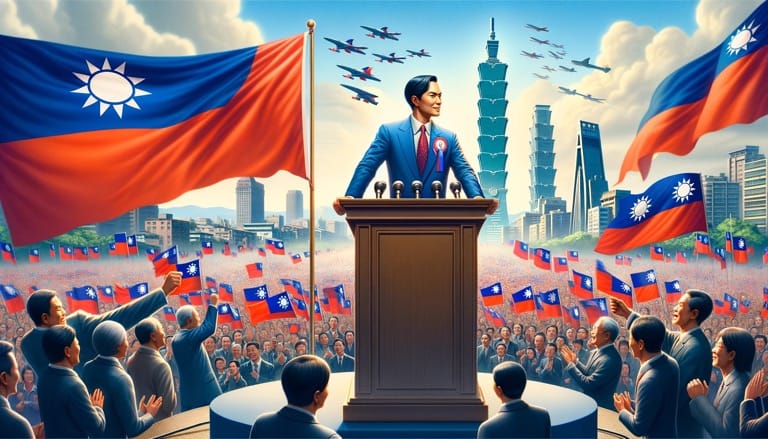William Lai's Victory in Taiwan Election: A Defiant Stand Against China's Claims
In a landmark election that has drawn international attention, Taiwan has witnessed a significant political shift with the victory of William Lai of the Democratic Progressive Party (DPP) in the presidential election. Garnering over 40% of the votes, Lai triumphed over his competitors from the Kuomintang (KMT) and the Taiwan

In a landmark election that has drawn international attention, Taiwan has witnessed a significant political shift with the victory of William Lai of the Democratic Progressive Party (DPP) in the presidential election. Garnering over 40% of the votes, Lai triumphed over his competitors from the Kuomintang (KMT) and the Taiwan People's Party (TPP), securing a historic third consecutive presidential term for the DPP.
Lai's election is particularly notable given his strong stance on Taiwan's independence and his history of challenging Beijing's claims over the island. During his campaign, Lai emphasized the importance of maintaining peace and stability in the Taiwan Strait, pledging to continue the current government's approach of seeking dialogue with China. However, he has firmly advocated for Taiwan's right to self-determination and has been a vocal critic of China's policies towards the island.
China's reaction to Lai's election has been predictably dismissive, reiterating its longstanding position that Taiwan is an integral part of China and that the election does not alter this stance. Beijing has consistently labeled Lai a separatist, reflecting the heightened tensions between the two sides.
On the day of the election, Taiwan's Ministry of National Defense reported that eight military aircraft and six ships were detected in the Taiwan Strait. This show of military strength by China is seen as an intimidation tactic and is part of a broader pattern of increased military activity and drills near Taiwan.
Lai's victory represents a clear message from the Taiwanese people: a strong commitment to democracy and a rejection of China's sovereignty claims. It underscores the island's resilience in the face of increasing pressure from Beijing and its desire to assert its independence on the global stage.
The election of Lai, a physician by training and a figure known for his humble beginnings, marks a significant moment in Taiwan's history. It highlights the complex and evolving dynamics of the relationship between Taiwan and China, and sets the stage for potential further tensions as Lai begins his term with a mandate to protect Taiwan's autonomy and democratic values.




